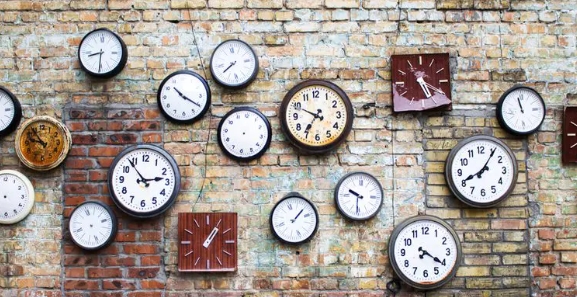
La historia del reloj es uno de los logros más notables de la humanidad: una búsqueda continua por medir, controlar y comprender el paso del tiempo. Desde los primeros intentos de las civilizaciones antiguas por rastrear el movimiento del sol hasta los relojes de cuarzo y atómicos de precisión actuales, la evolución de la cronometración refleja siglos de curiosidad, artesanía e innovación.
Mucho antes de la invención de los relojes mecánicos, las sociedades primitivas dependían de la naturaleza para marcar el tiempo. Los antiguos egipcios y babilonios usaban... relojes de sol seguir la sombra del sol, mientras relojes de agua (clepsidras) tiempo medido a través del flujo constante de agua. En climas más fríos, relojes de arena Relleno de arena se convirtió en una alternativa confiable.
Estos primeros inventos no eran verdaderos “relojes” como los conocemos, pero representaban la creciente conciencia de la humanidad sobre la importancia del tiempo en la vida diaria, desde la agricultura hasta el culto y el gobierno.
Los primeros relojes mecánicos aparecieron en Europa alrededor del siglo XIV, principalmente en monasterios y catedrales. Estos primeros relojes eran grandes y se accionaban mediante pesas, utilizando engranajes y escapes para regular el movimiento. Aunque carecían de esferas o manecillas, marcaban las horas con campanas, una herramienta vital para llamar a los monjes a la oración.
La identidad del primer relojero aún se debate, pero los primeros registros apuntan a innovadores medievales como Giovanni de Dondi en Italia, quien diseñó un reloj astronómico en 1364, y Ricardo de Wallingford en Inglaterra, quienes crearon un sofisticado reloj para la Abadía de St. Albans alrededor de 1330. Sus inventos sentaron las bases para la cronometración mecánica tal como la conocemos hoy.
Durante el Renacimiento, los avances en la metalistería y la ingeniería llevaron al desarrollo de relojes más pequeños y precisos para el hogar y el uso personal. reloj de péndulo, inventado por Christiaan Huygens En 1656, marcó un punto de inflexión en la precisión, al reducir los errores de tiempo de horas a meros segundos por día.
Esta innovación allanó el camino para el surgimiento de relojes de pared y de repisa decorativos, que se convirtieron en símbolos de gusto y riqueza en toda Europa y Asia.
En los siglos XVIII y XIX, la Revolución Industrial impulsó la producción en masa de relojes. Fábricas de Europa y Estados Unidos comenzaron a producir relojes asequibles, lo que permitió a los hogares comunes tener relojes por primera vez.
Los relojeros como Eli Terry y Seth Thomas En Estados Unidos, la industria se transformó al introducir piezas estandarizadas y técnicas de ensamblaje eficientes. Los relojes evolucionaron de ser un arte artesanal a ser un elemento esencial y confiable para el hogar.
El siglo XX marcó el comienzo de una nueva era en la cronometración. En 1927, los ingenieros... Warren Marrison y J. W. Horton En Bell Telephone Laboratories se desarrolló el primer reloj de cuarzo, que utilizaba las vibraciones de un cristal de cuarzo para mantener una frecuencia precisa. Este invento revolucionó la industria, dando lugar a relojes compactos, asequibles e increíblemente precisos.
Hoy en día, la tecnología de cuarzo sigue siendo la columna vertebral de la mayoría de los relojes de pared y de escritorio modernos, mientras que relojes atómicos —desarrollados por primera vez en la década de 1950— definen estándares de tiempo internacionales con una precisión de hasta milmillonésimas de segundo.
La relojería moderna ha evolucionado mucho más allá de la mecánica pura. VirtueTime / Relojes TongyuanCombinamos la precisión tradicional con Diseño y materiales innovadores — desde acabados de madera natural y cajas de acrílico hasta relojes inteligentes digitales con funciones de temperatura, humedad y carga USB.
Nuestra misión es continuar el legado de la relojería creando relojes que no solo midan el tiempo sino que también realcen la belleza y la energía de cada espacio.
La invención del reloj no fue un momento único sino un viaje que abarca miles de años —Una colaboración de culturas, científicos y artesanos. Desde relojes de sol hasta cuarzo, cada etapa de este viaje nos acercó a dominar uno de los mayores misterios de la vida: el tiempo mismo.
Para explorar relojes de pared y de mesa modernos inspirados en siglos de innovación, visite www.tongyuanclock.com